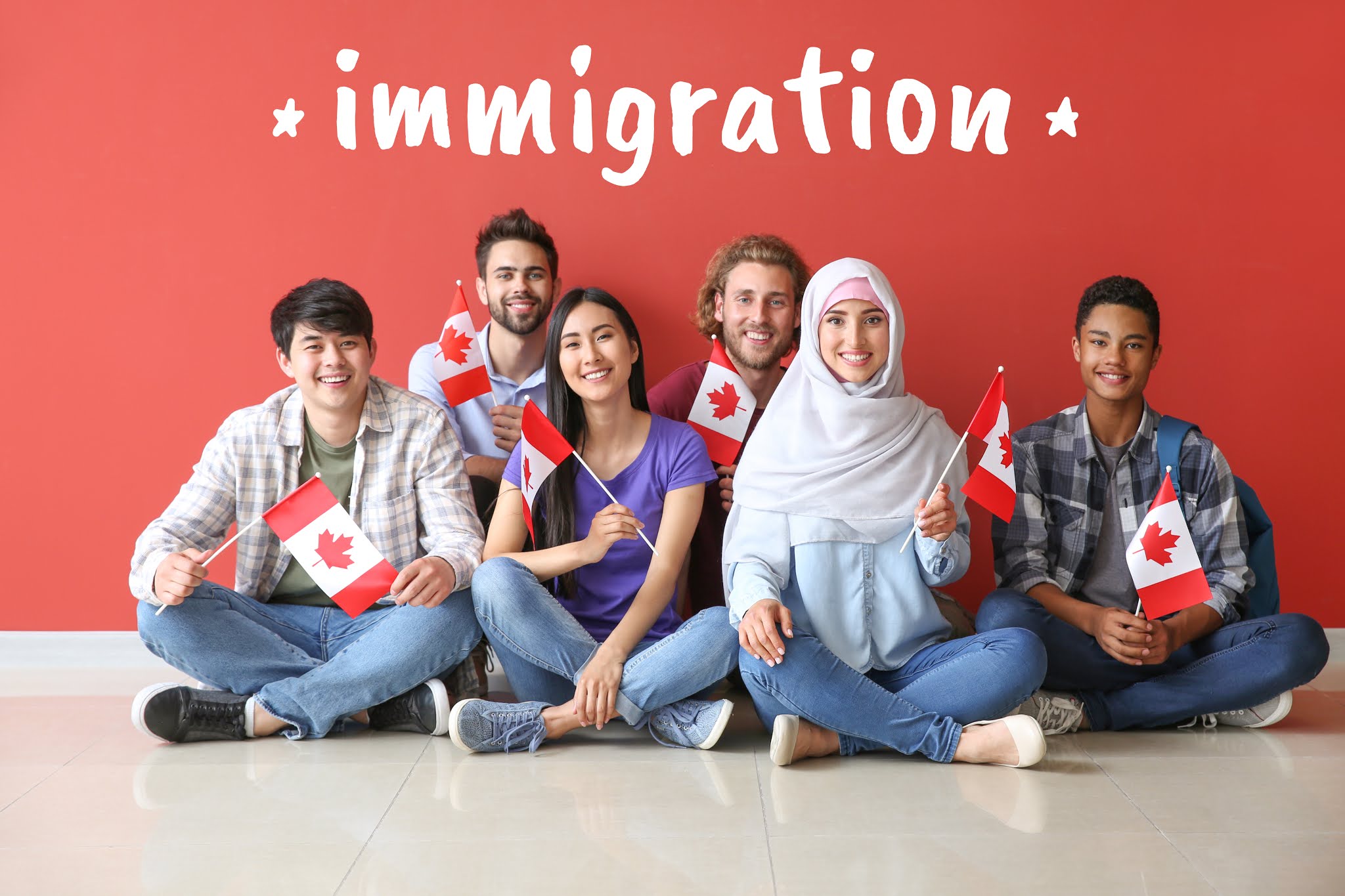Individual Immigration
Specialized Legal Guidance for Individual Immigration Matters



Ensure your wishes are honored and your loved ones are protected with our specialized legal guidance for individual immigration matters at FRANCIS LAW. Our experienced team specializes in a variety of services tailored to meet your specific needs.
Temporary Residents
Foreign Nationals can request to come to Canada on a Temporary basis, including coming to work, study or visit, and will leave Canada after a certain prescribed time limit.
Worker
A work permit application enables individuals from other countries to legally work in Canada for a certain temporary fixed period. Some of these work permits are specific to a single employer and in a certain position, called Closed Work Permits; whereas some allow foreign nationals to work in any position and in anywhere in Canada, called Open Work Permits.
- Employer-specific Work Permits: it requires the worker to work according to the specific conditions noted on the permit, such as the employer’s name, duration of work, and location. Often times the employer will need to provide the worker with a positive LMIA or LMIA-Exempt job offer.
- Open Work Permits:it allows the holder to work in any position without a restriction for a certain period. Open work permits are allowed only in certain situations. Some of the most popular open work permits are Post-Graduate Open Work Permits and Spousal Open Work Permits.
Applying for a work permit requires preparation of a comprehensive application package. Many work permits submitted from outside of Canada get refused for reasons such as “not convinced you will leave Canada at the end of your stay”. It is essential to address these issues before submitting of an application.
Visitors
Individuals can enter Canada as visitors for temporary purposes such as tourism, visiting family, or business trips.
Types of Temporary Resident Visas:
- Visitor Visa (Tourist Visa): This visa is for individuals visiting Canada for leisure or to visit family and friends.
- Business Visitor Visa: This visa is for individuals who are visiting Canada for business activities like meetings, conferences, or workshops, without entering the Canadian labor market.
- Super Visa: Specifically for parents and grandparents of Canadian citizens or permanent residents, allowing them to stay for up to two years at a time.
Students
Foreign Nationals who are accepted to study at designated learning institutions (DLIs) in Canada for the duration of the specific course or program can apply for a Study Permit. Study Permit application assessments are becoming increasingly strict. There are some key eligibility requirements that need to be met to study in Canada:
- Acceptance letter from a DLI: DLIs are schools approved by a provincial or territorial government to host international students.
- Funds: students must demonstrate that they have sufficient funds to cover their tuition, transportation costs, and living expenses in Canada. As of Jan 1, 2024, a single applicant studying outside Quebec will need to show they have CAN$20,635, in addition to their first year of tuition and travel costs.
- Purpose of Study: Applicants must provide a detailed description of their purpose of studying in Canada and how the study will benefit them in their career development. They must also convince the officer that they will leave Canada after completing their education in Canada.
Temporary Resident Permits (TRP)
TRPs are required when someone who is otherwise inadmissible to Canada due to a criminal record, health reasons, or any other violation of Canadian immigration laws, applying to enter Canada to visit, study or work in Canada. TRPs are issued infrequently and usually involve a careful assessment of whether a person's need to come to Canada outweighs the health or safety risks to Canadian society. Despite their inadmissibility, the individual may be granted entry for a justified reason.
Permanent Residents (PR)
Many of the temporary residents in Canada apply to remain in Canada permanently and they submit permanent resident applications through one of the programs available federally or provincially. Some applicants apply to become permanent residents of Canada directly from outside Canada.
Many of the temporary residents in Canada apply to remain in Canada permanently and they submit permanent resident applications through one of the programs available federally or provincially. Some applicants apply to become permanent residents of Canada directly from outside Canada.
Permanent Residents need to reside in Canada for at least 730 days during the last five years in order to maintain their PR status.
Sponsorships
Canadian citizens and Permanent Residents of Canada can sponsor their family members from abroad to become permanent residents of Canada. This pathway directly corresponds to Canada’s commitment to family reunification under the Immigration Refugees and Citizenship Act (IRPA).
- Spousal sponsorship: Spouses can be sponsored to become PRs of Canada. The Applicant and Sponsor must prove the relationship is genuine.
- Common-law Sponsorship: Common-Law partners can submit sponsorship applications; however they need to meet the eligibility requirements of a common-law relationship and prove that their relationship is genuine.
- Conjugal Sponsorship: Canadian citizens or permanent residents can sponsor a partner with whom they have a conjugal relationship but have not been able to live together continuously for at least one year, either as a married or a common-law couple. This category is specifically designed to address unique situations where couples face significant barriers that prevent them from living together, thus qualifying them neither as spouses nor as common-law partners.
- Dependent Children Sponsorship: Sponsors can bring their dependent children, including adopted children, to Canada. A dependent child is defined based on age and marital status.
- Parent and Grandparent Sponsorship: Canadians and PRs can sponsor their parents or grandparents to come to Canada as permanent residents. This program usually opens once a year after an announcement by the Immigration Refugees and Citizenship Canada (IRCC). The selection process of this type of application has been unpredictable in recent years, mostly being a lottery system.
- Other Relatives Sponsorship: Under specific circumstances, a Canadian citizen or permanent resident may sponsor other relatives, such as brothers, sisters, nephews, nieces, or grandchildren, if they meet certain conditions, such as being orphaned and under a certain age. “Lonely Canadian Sponsorship” is one of the examples.
Express Entry
Express Entry is a deferral program where skilled workers inside and outside Canada apply to the federal government of Canada to become permanent residents directly. The eligibility and selection process are usually exceptionally competitive. This program is a direct response to the Canadian government’s commitment to attract skilled workers to promote economic development under the Immigration Refugees and Citizenship Act (IRPA).
There are three main streams under Express Entry:
- Federal Skilled Worker Program (FSWP): For skilled workers with minimum of one year of skilled work experience who want to immigrate to Canada permanently. The applicant must also meet certain financial, educational and language requirements in order to be eligible for this stream.
- Federal Skilled Trades Program (FSTP): For skilled trade workers who want to become permanent residents based on being qualified in a skilled trade.
- Canadian Experience Class (CEC): This stream is applicable for applicants who have worked in Canada for a minimum one year within the past three (3) years. The eligibility criteria is slightly different than the FSW stream, although the educational and language requirements remains the same.
How Express Entry Works: candidates need to follow the steps below in order to apply for PR under Express Entry:
There are three main streams under Express Entry:
- Create an Express Entry Profile: be eligible for one of the Express Entry stream and create a profile to place themselves in the Express Entry pool;
- Get ranked under the Comprehensive Ranking System (CRS): The competitiveness of the applicant will be determined after being ranked according to the CRS;
- Invitation to Apply: IRCC conducts regular draws from the EE pool; Competitive candidates will get invited to apply for permanent residency after being selected.
- Submission and processing of PR applications: after a complete PR application is submitted, IRCC assesses if the applicant meets all the requirements and makes a final determination as to approve or deny the applicant’s permanent residency application.
Provincial Nominee Programs (PNPs)
Provinces and territories of Canada can nominate individuals who wish to immigrate to Canada and are interested in settling in a particular province or territory. Each PNP is tailored to the specific economic and demographic needs of the province, helping to attract workers who can contribute to the local economy and fill specific labor market gaps. Provinces can target certain skilled and semi-skilled workers as well as business investors to settle in respective provinces/territories.
PNP program eligibility criteria are usually more flexible and less demanding than Express Entry stream requirements.
Every province and territory of Canada, except for Nunavut, have their tailored provincial nominee programs.
List of the PNPs offered by each province and territory:
- Alberta: Alberta Advantage Immigrant Program (AINP)
- British Columbia: British Columbia Provincial Nominee Program (BC PNP)
- Manitoba: Manitoba Provincial Nominee Program (MPNP)
- New Brunswick: New Brunswick Provincial Nominee Program (NBPNP)
- Newfoundland and Labrador: Newfoundland and Labrador Provincial Nominee Program (NLPNP)
- Nova Scotia: Nova Scotia Nominee Program (NSNP)
- Ontario: Ontario Immigrant Nominee Program (OINP)
- Prince Edward Island: Prince Edward Island Provincial Nominee Program (PEI PNP)
- Saskatchewan: Saskatchewan Immigrant Nominee Program (SINP)
- Northwest Territories: Northwest Territories Nominee Program (NTNP)
- Yukon: Yukon Nominee Program (YNP)
Quebec does not have a PNP. Instead, it has its own immigration selection system under the Quebec Immigration Program, which includes different criteria and processes tailored to the province’s specific needs.
PNP program eligibility criteria are usually more flexible and less demanding than Express Entry stream requirements.
Nunavut does not have a PNP or a specific immigration program. Immigration is not a primary focus in Nunavut.
Atlantic Immigration Program (AIP)
With the help of Atlantic Immigration Program (AIP), the employers in four Atlantic Provinces of Canada— Nova Scotia, New Brunswick, Newfoundland and Labrador, and Prince Edward Island — can hire foreign nationals for positions they couldn’t fill locally. This program aims to facilitate the settlement of skilled workers and international graduates who can contribute to the economic growth and labor market needs of these regions.
This is an employer-driven process, where employers in these four provinces must be designated by the provincial government to provide job offers to foreign nationals and provide support to them. The workers could be hired in high-skilled, intermediate skilled or graduate program categories.
Rural and Northern Immigration Pilot (RNIP)
The Rural and Northern Immigration Pilot (RNIP) is a community-driven program designed by the federal government of Canada to economically benefit smaller rural and northern communities to provide easier pathways for immigration pathways to attract foreign workers and benefit local employers. This initiative is part of Canada's effort to address the demographic and labor market challenges faced by these areas, which often struggle to attract and retain new residents and workers due to their remote locations.
Applicants need to receive a job offer from employers in one of the designated communities and meet other requirements in order to be eligible for this stream. As of 2023, the participating communities in the RNIP include:
Agri-food Pilot
This is a federal program that is designed to address the labour needs of the Canadian agri-food sector by providing a pathway to permanent residence for experienced, non-seasonal workers in specific industries and occupations within agriculture and food processing.
- Targeted Industries: The program specifically targets industries such as meat processing, mushroom and greenhouse production, and animal raising, focusing on attracting workers in these critical areas of Canada's agriculture sector.
- Occupation-specific: Eligibility is limited to certain occupations that are deemed essential to the agri-food sector, such as butchers, farm workers, and food processing laborers.
Humanitarian and Compassionate (H&C)
The Humanitarian and Compassionate (H&C) grounds application is a provision that allows individuals who are not eligible for permanent residence through other immigration programs to apply for residency if they can demonstrate that they would experience unusual, undeserved, or disproportionate hardship if required to leave Canada.
Applications are assessed on a case-by-case basis. The factors that are taken into consideration are: 1) Settlement in Canada; 2) Best interest of Children; 3) Health Considerations; 4) Consequences of Separation from Relatives; 5) Hardship upon Return to home country.
FAQ's
FRANCIS LAW offers a wide range of legal services to individuals and businesses, including but not limited to civil litigation, personal inquiry, immigration, family law, and corporate law. Our experienced team of lawyers specializes in providing guidance and support across various practice areas.
Scheduling a consultation with FRANCIS LAW is easy! Simply contact us through our website or give us a call, and our friendly staff will assist you in setting up a meeting with one of our experienced attorneys. We’re here to help you with all of your legal needs.
At FRANCIS LAW, we pride ourselves on our client-centered approach and commitment to excellence. Our team of lawyers brings a wealth of experience and expertise to every case we handle, and we prioritize the needs of our clients above all else. Whether you’re facing a complex legal issue or need assistance with a routine matter, you can trust FRANCIS LAW to provide you with the highest quality representation.
Yes, you can read testimonials from past clients on our website. We’re proud of the positive feedback we’ve received from clients who have trusted us with their legal matters, and we’re happy to share their experiences with you. Visit our Testimonials page to see what our clients have to say about working with FRANCIS LAW.
Yes, FRANCIS LAW has a blog where we regularly publish informative articles, legal updates, and insights on various legal topics. Our blog covers a wide range of subjects, including but not limited to recent case studies, changes in legislation, and practical legal advice. Visit our Blog page to stay informed about important legal developments.
If you have a question that isn’t answered here, please don’t hesitate to contact us. Our team is here to help you with any inquiries you may have, and we’re committed to providing you with the information and support you need to make informed decisions about your legal matters.
Our Blogs
Stay up-to-date with the latest legal news, insights, and tips by following the FRANCIS LAW blog. Our team of experienced lawyers regularly publishes articles on a wide range of legal topics to keep you informed and empowered.



